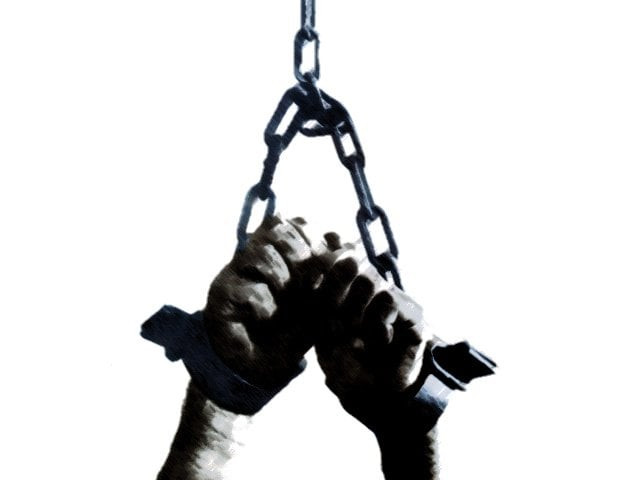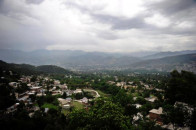Police coercion: Campaign against torture launched
Civil society groups say campaign to raise awareness, lobby for laws.

More than 57 per cent of people accused of crimes say that they were tortured in police custody PHOTO: FILE
More than 57 per cent of people accused of crimes say that they were tortured in police custody and 51 per cent say their families paid the police not to torture them, according to a study on the right to a fair trial, shared with the media at the launch of an awareness campaign here on Tuesday.
The police often use torture to coerce confessions from suspects. The campaign is an effort by several groups to document cases of torture in police custody and make them known to the public at large and to people in power. It was launched on the eve of the International Day on Torture.
Pakistan is a signatory to the United Nations Convention Against Torture (UNCAT) and has a sovereign responsibility to reform its criminal justice system so it is compatible with international standards for fair trials, said Tanveer Jahan, the executive director of Democratic Commission for Human Development (DCHD).
According to a DCHD study – ‘The right to a fair trial: a journey through the criminal justice system in Pakistan’ 44 per cent of women accused of crimes were made to stay overnight at the police station, despite court judgments against the practice.
Academic and rights activist Wajahat Masood said the study found that the main pillars of the criminal justice system prosecution, police, judiciary and prison were failing in their duty towards the state and society. As many as 51 per cent of people accused of crimes were formally arrested after 10 days in detention, he said. In the vast majority of cases, he said, magistrates remanded the accused without looking at the evidence. In 81 per cent of cases, the magistrate did not ask the accused if they had been tortured. Moreover, 92 per cent of the accused were not medically examined after remand.

Jahan said the main aim of the national campaign, which would run for two years, was to raise awareness among citizens and public officials about incidents of torture, about their rights and about the international law against torture.
The campaign would include documentation of torture cases, consultative workshops in provincial capitals to tap stakeholders on their recommendations, and seminars and workshops in district headquarters. A web portal would be designed to hold information on the campaign and news and social media would be engaged. The campaign would culminate in the formation of an alliance of civil society organisations against torture, Jahan said.
The Institute for Peace and Secular Studies conducted a separate study – ‘Paving the way forward: the fight against police torture in Pakistan’ in which the police and members of the public were asked about the UNCAT. Maryam Arif, who conducted this study, said 76 per cent of the research participants had never heard about the UN Convention, while 83 per cent were unaware of the existing law against torture.
Rabia Chaudhry of the Centre for Public Policy and Governance at FC College also shared her findings in a study titled ‘Custodial torture and human rights: designing a policy framework for Pakistan.
Abid Saqi Bhatti, the president of the Lahore High Court Bar Association, said that the government needed to pass legislation which gave a clear definition of torture and outlawed it unambiguously.
Peter Jacob, the executive secretary of the National Commission for Justice and Peace, said the government should place a “human rights officer” in every police station to ensure that suspects’ rights are not violated.
The Foundation Open Society Institute of Pakistan (FOSIP) is also assisting with the campaign.
Published in The Express Tribune, June 26th, 2013.



















COMMENTS
Comments are moderated and generally will be posted if they are on-topic and not abusive.
For more information, please see our Comments FAQ